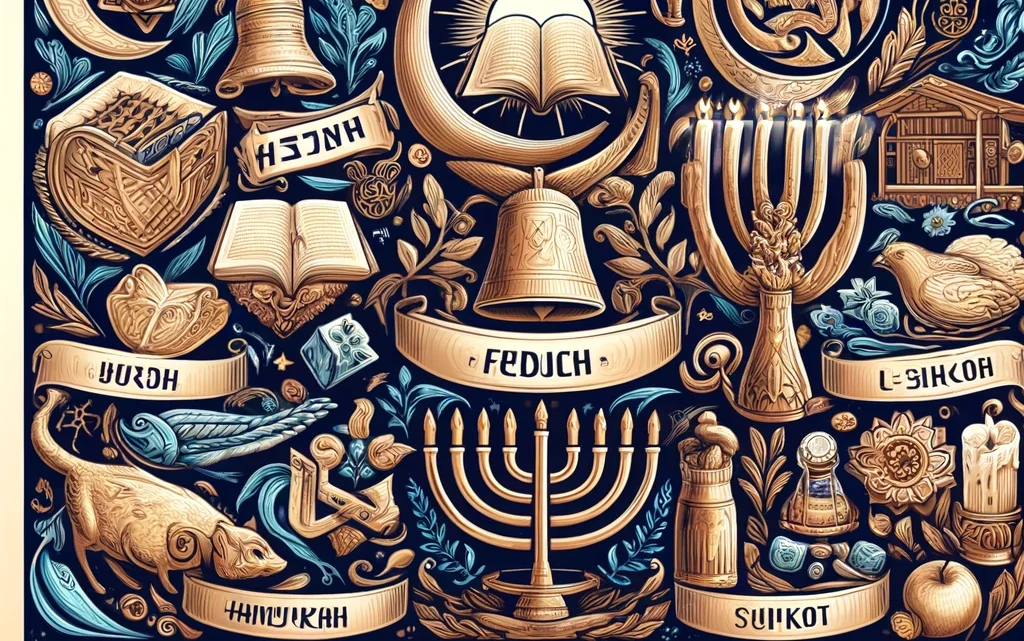The Hebrew Calendar: Aligning Your Life with Yehovah’s Appointed Times

Introduction
The Hebrew calendar, rich with biblical significance, is central to understanding Yehovah’s appointed times. This post delves into the structure of the Hebrew calendar, its key festivals, and how aligning one’s life with these appointed times can enhance spiritual growth and understanding.
The Structure of the Hebrew Calendar
Description: The Hebrew calendar is a lunisolar calendar, meaning it is based on the cycles of both the moon and the sun. It consists of 12 months, with a leap month added approximately every three years to align with the solar year.
Significance: The lunisolar nature of the calendar ensures that the biblical festivals occur in their designated seasons, preserving their agricultural and spiritual meanings.
Key Festivals and Their Significance
Passover (Pesach)
- Scriptural Reference: Exodus 12:1-14
- Description: Passover commemorates the Israelites’ deliverance from Egyptian bondage.
- Modern Relevance: For believers, Passover symbolizes Yeshua’s sacrificial death and the redemption from sin.
Unleavened Bread (Chag HaMatzot)
- Scriptural Reference: Leviticus 23:6-8
- Description: This seven-day festival involves eating unleavened bread, symbolizing the haste of the Israelites’ departure from Egypt and the need for spiritual purity.
- Modern Relevance: It encourages believers to remove sin from their lives and live in sincerity and truth.
Firstfruits (Yom HaBikkurim)
- Scriptural Reference: Leviticus 23:9-14
- Description: This festival marks the beginning of the barley harvest and involves offering the first fruits to Yehovah.
- Modern Relevance: It represents Yeshua’s resurrection and the promise of eternal life for believers.
Pentecost (Shavuot)
- Scriptural Reference: Leviticus 23:15-21
- Description: Shavuot occurs 50 days after Passover and celebrates the giving of the Torah at Mount Sinai.
- Modern Relevance: It also commemorates the outpouring of the Holy Spirit in the New Testament, highlighting the importance of God’s Word and Spirit.
Feast of Trumpets (Yom Teruah)
- Scriptural Reference: Leviticus 23:23-25
- Description: Known as Rosh Hashanah, this festival marks the civil new year and involves blowing the shofar (ram’s horn).
- Modern Relevance: It calls believers to repentance and spiritual awakening in preparation for Yeshua’s return.
Day of Atonement (Yom Kippur)
- Scriptural Reference: Leviticus 23:26-32
- Description: A solemn day of fasting, prayer, and repentance, it is considered the holiest day of the year.
- Modern Relevance: It emphasizes the need for atonement and the cleansing power of Yeshua’s sacrifice.
Feast of Tabernacles (Sukkot)
- Scriptural Reference: Leviticus 23:33-43
- Description: Sukkot commemorates the Israelites’ journey through the wilderness, living in temporary shelters.
- Modern Relevance: It encourages believers to trust in Yehovah’s provision and to rejoice in His presence.
Conclusion
Aligning one’s life with the Hebrew calendar and Yehovah’s appointed times can deepen spiritual understanding and connection. These festivals are not only historical commemorations but also prophetic markers that highlight significant aspects of the believer’s faith journey. Embracing these appointed times can lead to a richer, more meaningful walk with Yehovah.

